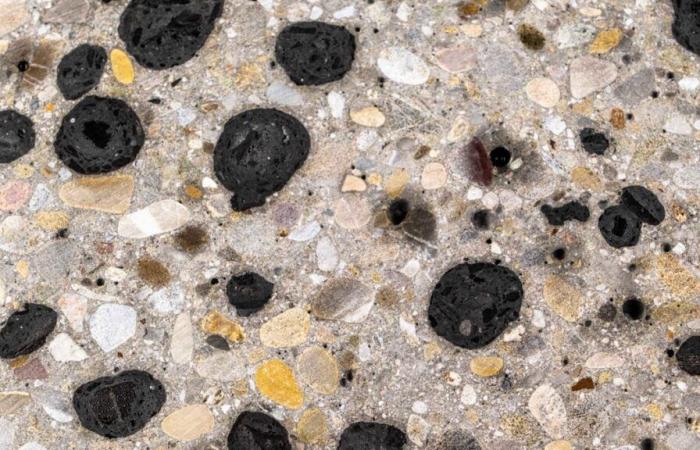The idea is quite crazy: capture excess CO2 from the atmosphere to store it in construction materials like concrete and thus reduce greenhouse gas emissions. An idea called “atmospheric mining” that researchers at the Federal Laboratory for Materials Testing and Research (Empa) have been working on since 2023. And whose enormous potential we are beginning to see.
Because to reduce the concentration of CO2 to the 1988 level (this is the targeted level), it would be necessary, according to estimates, to eliminate 400 billion tonnes of carbon, or 1500 billion tonnes of CO2. Mission impossible? Not for Swiss scientists. They calculated that five to ten billion tonnes of carbon could be used each year in the form of concrete aggregates. This would be enough to sustainably store excess CO2 by 2150 and thus reduce it to an acceptable level, according to Empa.
How does it work? The CO2 is first converted into commodity chemicals such as methane or methanol. These are then processed to replace conventional building materials and petrochemicals. At the end of their life cycle, these carbon-rich materials are stored in special landfills to permanently bind the carbon. “Concrete seems predestined for long-term storage, because it can absorb enormous quantities,” explains Pietro Lura, head of the concrete and asphalt department at Empa.
But the key will be the production of silicon carbide, which can be used as a filler in construction materials. “Silicon carbide offers enormous advantages because it binds carbon virtually forever and has excellent mechanical properties. However, production is extremely energy-intensive and represents one of the biggest challenges, both in terms of profitability and sustainable implementation,” concludes Pietro Lura.
-
A pilot project in Geneva
Note that SIG in Geneva is already testing a system to capture CO2, liquefy it and inject it into rubble. A pilot project which will avoid emissions of 1,500 tonnes of carbon dioxide annually. This unique system in French-speaking Switzerland is being tested at the Aïre wastewater treatment plant (STEP) biogas station. The aggregates can be used to make recycled concrete or in road construction. An assessment will be carried out at the end of the pilot project which lasts three years.






